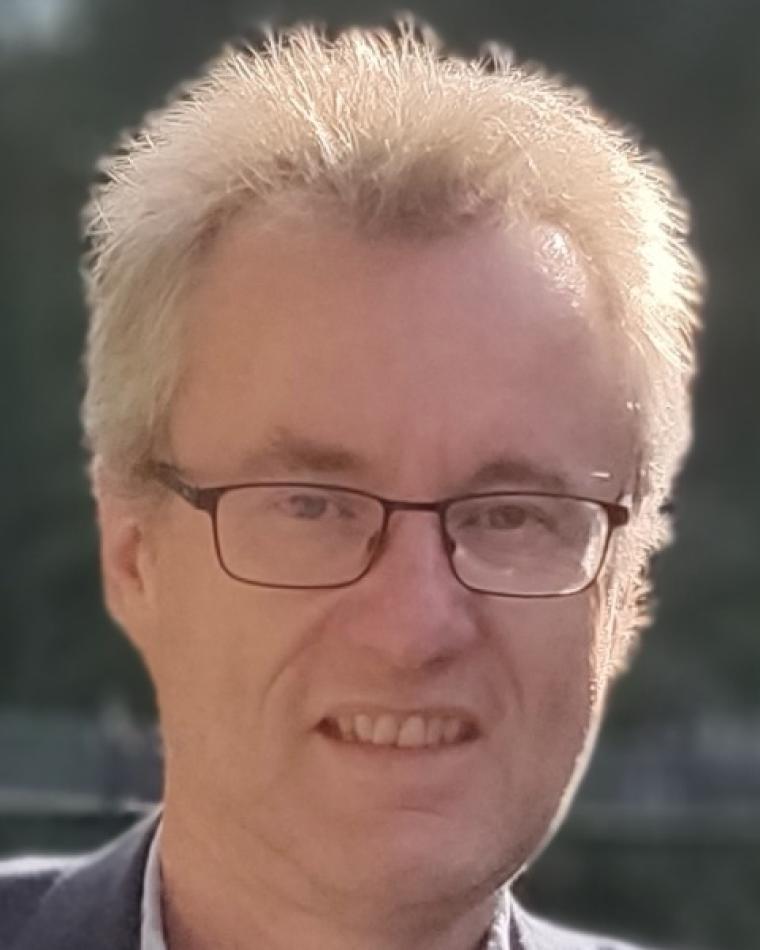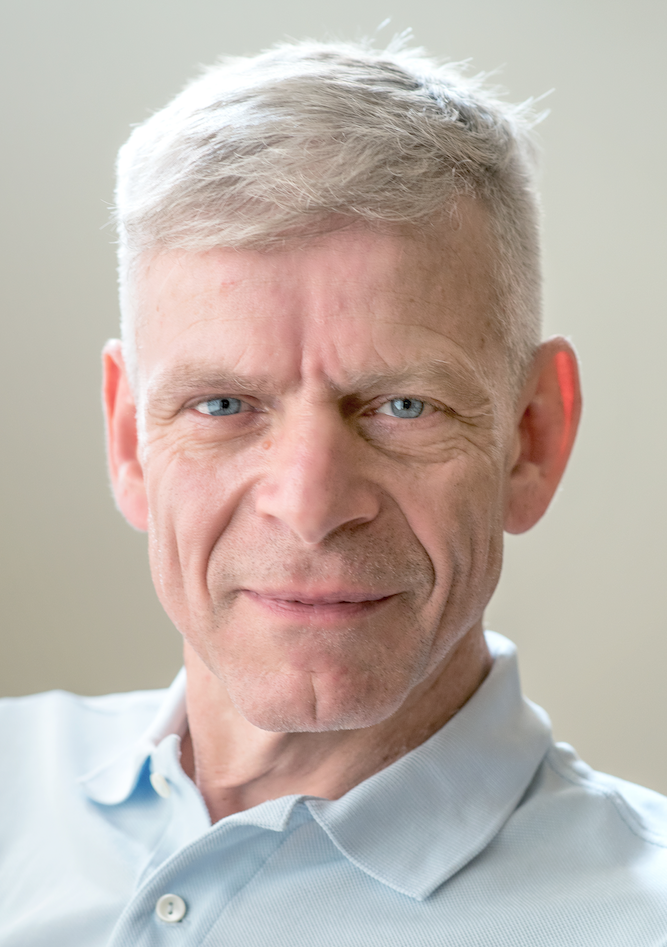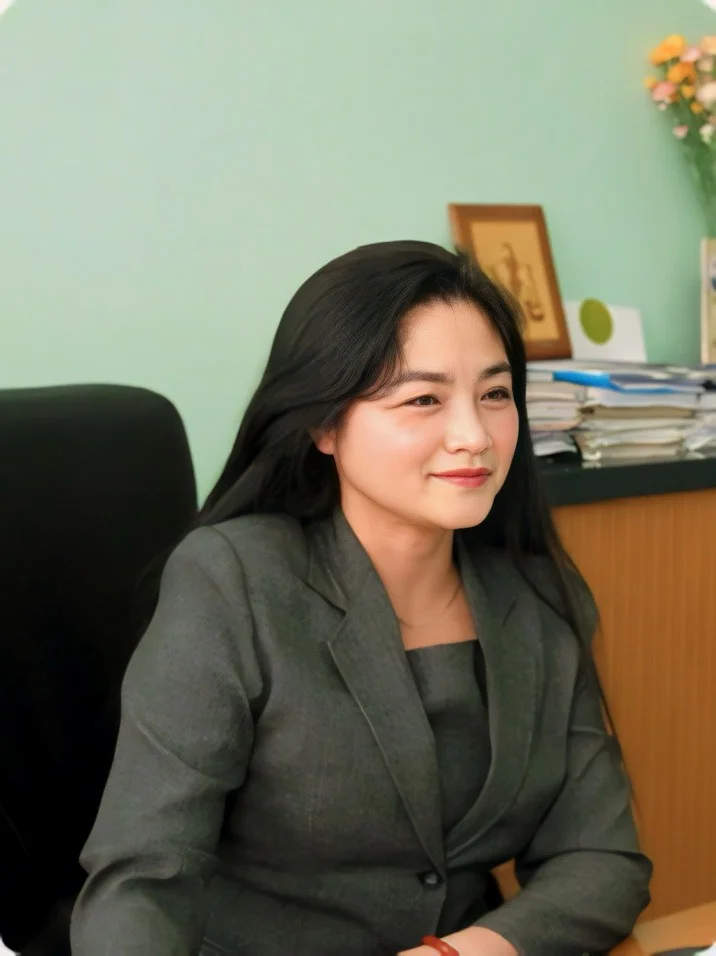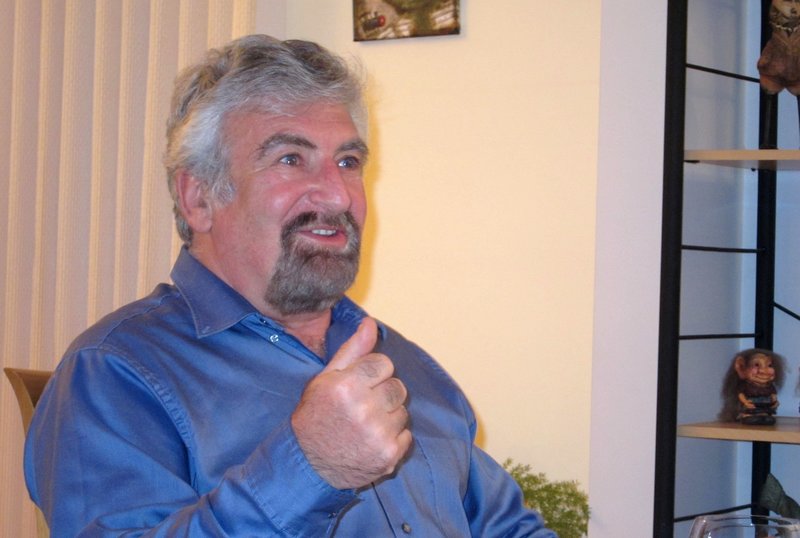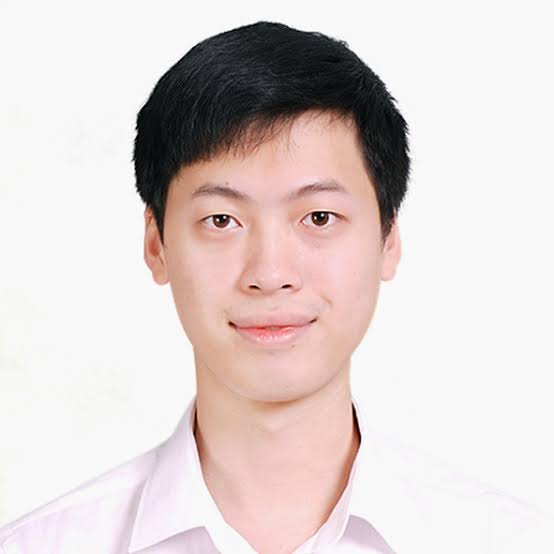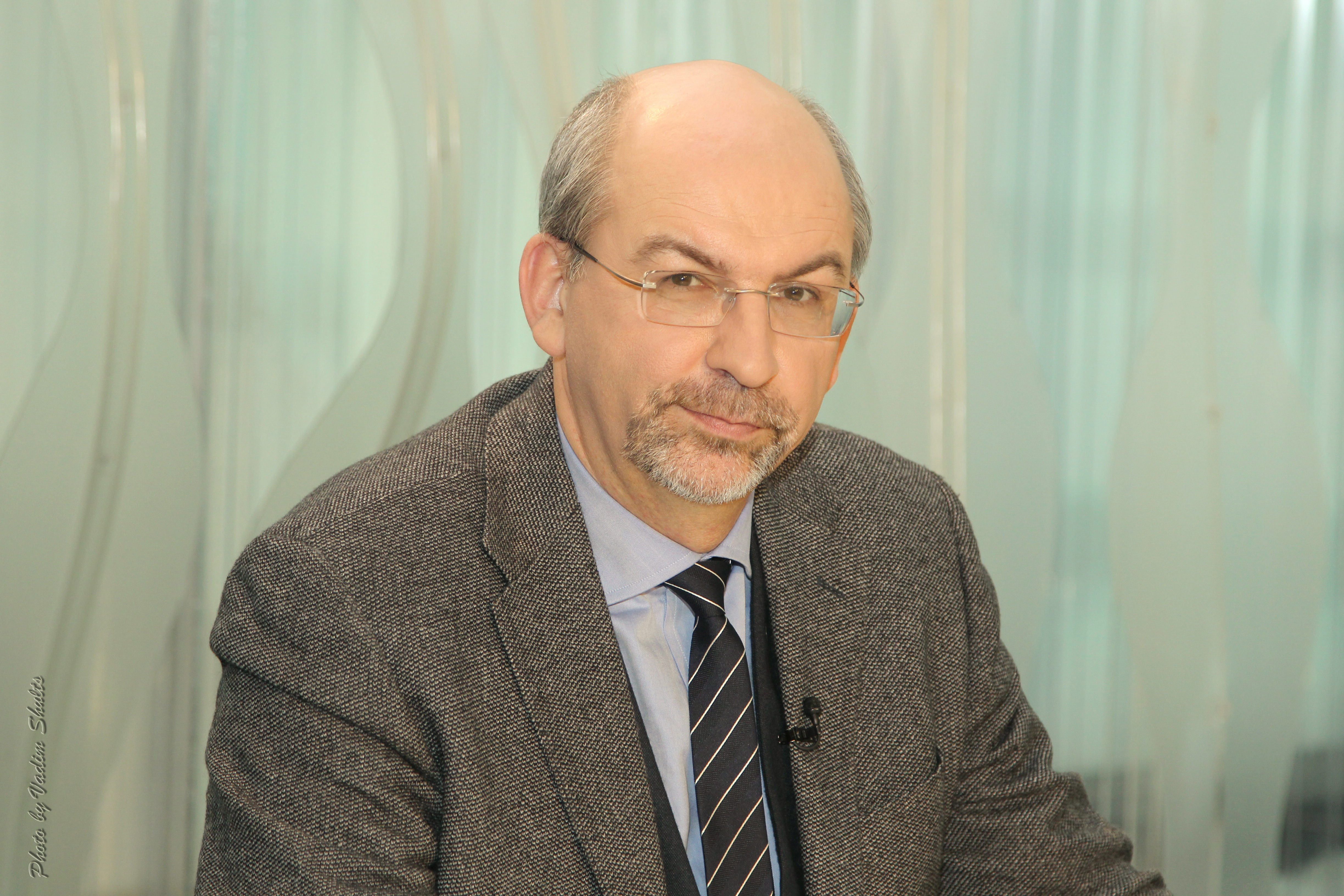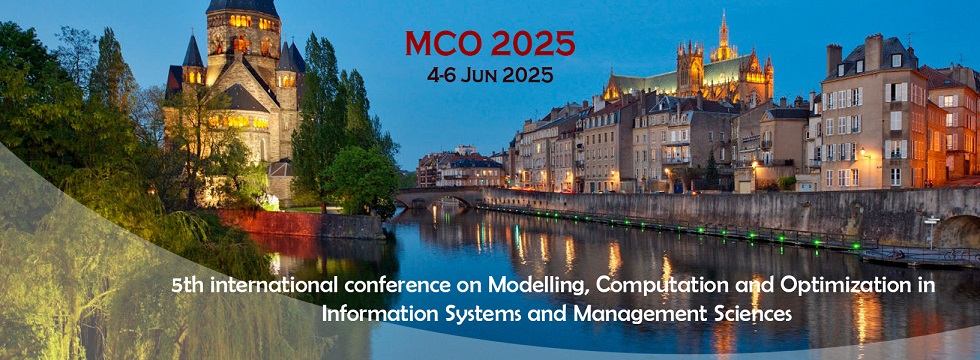
|
|
|
Plenary Lectures
Plenary Lectures
Recent imaging technologies towards a more realistic and immersive user experience Abstract: Nowadays, thanks to rapid technological progresses over the last decades, digital images and video sequences are ubiquitous, with many remarkable and successful applications and services. A key driver to research and development activities has been the objective to provide an ever-improving visual quality and user experience.
Brief bio: Dr. Frederic Dufaux is a CNRS Research Director at Université Paris-Saclay, CNRS, CentraleSupélec, Laboratoire des Signaux et Systèmes (L2S, UMR 8506), where he is head of the Telecom and Networking research hub. He is a Fellow of IEEE.
Invertible Neural Networks and Implicit Models
Abstract: Inverse problems, inferring hidden parameters from observed outcomes, are central tomany scientific and engineering domains. However, traditional feedforward neural networks struggle because their architectures are generally non-invertible, making the inverse mapping ill-posed. We address this challenge by leveraging implicit deep learning models, which define computations through fixed-point equations rather than a prescribed sequence of layers. In an implicit model, the hidden state x is defined as the solution to an equilibrium equation x = ϕ(Ax + Bu), and the output is given by y = Cx + Du. This fixed-point formulation provides a common theoretical foundation that generalizes a wide range of ar- chitectures, including fully connected, residual, convolutional, and attention-based networks, under a unified framework. In this case, the system matrix A is always strictly (block) upper triangular, ensuring a unique solution. Implicit models, however, offer greater flexibility by allowing more entries of A to be learned, often with sparsity or robustness regularization. A key theoretical contribution of this work is the derivation of an analytical inver- sion for implicit models under a Perron-Frobenius-based well-posedness condition. Under this condition, the inverse mapping can itself be expressed as an implicit equation: \bar{x} = ϕ((A − BD^{−1}C)\bar{x} + BD^{−1}y) and \bar{u} = D^{−1}C \bar{x} + D{−1}y. This analytical solution enables exact inference, sensitivity analysis, and specification mining without resorting to iterative gradient-based methods or requiring specialized network designs. Furthermore, we show that implicit models inherently offer robustness and new degrees of freedom in invertible network design. We validate, theoretically and empirically, that they can accurately represent other network architectures. Under the well-posedness condi- tion, this representation yields practical advantages, including enhanced robustness against data corruptions and adversarial attacks. Critically, combining this representational ability with exact analytical inversion allows implicit models to serve as invertible counterparts to originally non-invertible architectures. Its promising capabilities are further demonstrated through successful applications in image modeling and time series analysis. These results establish implicit deep learning as a principled and versatile framework for solving illposed inverse problems, effectively unifying fixedpoint theory, optimization, and modern deep neural network design. We provide an open-source implementation of implicit deep learning at https://github.com/HoangP8/torchidl.
Brief bio: I graduated from Ecole Polytechnique (Palaiseau, France) in 1985, and obtained my PhD in Aeronautics and Astronautics at Stanford University in March 1990. I was a faculty member of the Ecole Nationale Supérieure de Techniques Avancées (Paris, France) from 1992 until 1999, and held part-time teaching appointments at Ecole Polytechnique within the Applied Mathematics department and Université de Paris-I (La Sorbonne) in the Mathematics in Economy program. II joined the Berkeley faculty in April 1999 as an Acting Associate Professor, and obtained my tenure in May 2001. I went on leave from UC since July 2003 until September 2006 to work for SAC Capital Management, a hedge fund based in New York and Connecticut. Since then I have been back full time at UC Berkeley in the EECS department. I teach optimization in that department (EE 127 / EE 227AT and EE 227BT), and a class on Optimization Models within the Masters of Financial Engineering at the Haas School of Business.
From Optimization to AI: 40 Years of DCA’s Evolution and Impact Celebrating 40th birthday of DCA Abstract: For four decades, the Difference of Convex Functions Algorithm (DCA) has been a cornerstone of optimization, solving complex nonconvex and nonsmooth problems across various domains. As artificial intelligence (AI) advanced, DCA became an essential tool, enabling AI systems to solve critical optimization challenges in machine learning, computer vision, robotics, natural language processing, autonomous systems, and many other fields. This talk will celebrate DCA’s 40-year legacy, highlighting its pivotal role in advancing AI through optimization. We will explore DCA’s foundational contributions to optimization and how DCA helped AI systems overcome key challenges by providing efficient methods for solving difficult optimization problems. From its origins in traditional optimization tasks to its integration into AI-driven solutions, DCA has been instrumental in improving AI performance. In particular, DCA has enabled optimization in large-scale models, empowered deep learning, reinforcement learning, and real-time decision-making, pushing the boundaries of AI capabilities, facilitating progress across diverse industries. Throughout its evolution, DCA has enabled breakthroughs in diverse sectors such as healthcare, finance, resource allocation, supply chain management, smart grids, cybersecurity, and network communication. Its impact has been crucial in advancing AI applications and continues to shape the future of intelligent systems. Looking ahead, we will consider DCA’s ongoing role in tackling emerging challenges in autonomous vehicles, edge computing, renewable energy, semiconductor design, and AI hardware, exploring how it will continue to drive innovation in AI optimization. Join us in celebrating DCA’s legacy, its ongoing impact, and its vital role in empowering AI through optimization over the past 40 years.
Brief bio: Prof. Le Thi Hoai An earned her PhD with Highest Distinction in Optimization in 1994, and her Habilitation in 1997 both from university of Rouen, France. From 1998 to 2003 she was Associate Professor in Applied Mathematics at the National Institute for Applied Sciences, Rouen, and from 2003 to 2012 she was Full Professor in Computer Science at the University of Paul Verlaine – Metz. Since 2012 she has been Full Professor exceptional class, University of Lorraine. She held the position of Director of the Theoretical and Applied Computer Science Lab of University of Paul Verlaine and then University of Lorraine from 2008 to 2017. She is the holder of the Knight in the Order of Academic Palms Award of French government in July 2013. She was nominated a Senior Member of the Academic Institute of France (IUF) in June 2021, and received the 2021 Constantin Caratheodory Prize of the International Society of Global Optimization which rewards outstanding fundamental contributions that have stood the test of time to theory, algorithms, and applications of global optimization.
Solving Multifacility Location Problem By DC Algorithms Abstract: The talk presents a new approach to solve multifacility location problems, which is based on mixed integer programming and algorithms for minimizing differences of convex (DC) functions. The main challenges for solving the multifacility location problems under consideration come from their intrinsic discrete, nonconvex, and nondifferentiable nature. We provide a reformulation of these problems as those of continuous optimization and then develop a new DCA type algorithm for their solutions involving Nesterov's smoothing. The proposed algorithm is computationally implemented via MATLAB numerical tests on both artificial and real data sets. We also discuss a Boosted version of DCA useful in some applications to machine learning, AI, and biochemical modeling.
Brief bio: Boris Mordukhovich is an American applied mathematician recognized for his research in the areas of nonlinear analysis, optimization, data science (including machine learning and AI), and control theory. Mordukhovich is one of the founders of modern variational analysis and its applications to optimization and data science. Currently he is a Distinguished University Professor of Mathematics at Wayne State University and a Lifetime Scholar of the WSU Academy of Scholars. His theory and various applications have been summarized in 7 monographs (the most recent one was published in 2024) and more that 550 publications in high-level journals on applied mathematics, data science, etc. He also holds 2 patents for engineering design. Mordukhovich is a recipient of many international awards and honors including Dr. Honoris Causa from 6 universities and 2 Honorary Professorships worldwide. He is a Foreign Member of the National Academy of Sciences of Ukraine and a Corresponding Member of the Accademia Peloritana dei Pericolanti (Italy). Mordukhovich was the Founding Editor and Editor-in-Chief of the International Journal on Set-Valued and Variational Analysis. Currently he is an Area Editor of the Journal of Optimization theory and Applications and an Associate Editor of many prestigious journals. Mordukhovich is an AMS Fellow of the Inaugural Class, a SIAM Fellow, an Inaugural ScholarGPS Highly Ranked Scholar in Mathematical Optimization. He is on the list of Highly Cited Researchers in Mathematics.
Advances in Non-Convex Optimization: Shuffling Methods and Momentum Techniques for Machine Learning Abstract: Recent advances in machine learning and artificial intelligence have driven a growing demand for scalable and efficient optimization techniques, particularly for non-convex problems in deep learning, large-scale data analysis, and reinforcement learning. In this talk, I will discuss a recent development in non-convex optimization, focusing on both its theoretical foundations and practical implications. I will highlight recent progress on shuffling-type gradient methods, which improve convergence rates compared to classical stochastic gradient algorithms. Specifically, I will present a unified analysis for non-convex finite-sum minimization, demonstrating how randomized reshuffling enhances convergence guarantees. Additionally, I will explore momentum-based approaches, such as Nesterov Accelerated Shuffling Gradient, and their role in improving convergence in convex settings. By bridging theory and practice, this talk will provide researchers and practitioners with insights into designing more efficient and robust optimization algorithms for AI applications.
Brief bio: I am a Staff Research Scientist at IBM Research, Thomas J. Watson Research Center working in the intersection of Optimization and Machine Learning / Deep Learning. I am also a Principal Investigator of ongoing MIT-IBM Watson AI Lab projects and an IBM Master Inventor. I proposed a new algorithm for machine learning problems called SARAH (which is named after my daughter's name Sarah H. Nguyen) for solving convex and nonconvex large scale optimization problems. This paper is published in The 34th International Conference on Machine Learning (ICML 2017). At IBM Research, my work on "Stochastic Gradient Methods: Theory and Applications" was selected for 2021 IBM Research Accomplishments and the paper "A Hybrid Stochastic Optimization Framework for Composite Nonconvex Optimization" (SGD-SARAH) was selected as a winner of the 2022 Pat Goldberg Memorial Best Paper competition.
Numerical infinities and infinitesimals in optimization Abstract: In this talk, a recent computational methodology is described (see [1,2]). It has been introduced with the intention to allow one to work with infinities and infinitesimals numerically in a unique computational framework. It is based on the principle ‘The part is less than the whole’ applied to all quantities (finite, infinite, and infinitesimal) and to all sets and processes (finite and infinite). The methodology uses as a computational device the Infinity Computer (a new kind of supercomputer patented in several countries) working numerically with infinite and infinitesimal numbers that can be written in a positional system with an infinite radix. On a number of examples (numerical differentiation, divergent series, ordinary differential equations, etc.) it is shown that the new approach can be useful from both theoretical and computational points of view. The main attention is dedicated to applications in optimization (local, global, and multi-objective) (see [1,2-7]). The accuracy of the obtained results is continuously compared with results obtained by traditional tools used to work with mathematical objects involving infinity. For more information see the dedicated web page http://www.theinfinitycomputer.com and this survey: The web page developed at the University of East Anglia, UK is dedicated to teaching the methodology: https://www.numericalinfinities.com/
Brief bio: Yaroslav D. Sergeyev is Distinguished Professor at the University of Calabria, Italy and Head of Numerical Calculus Laboratory at the same university. Several decades he was also Affiliated Researcher at the Institute of High-Performance Computing and Networking of the Italian National Research Council, and is Affiliated Faculty at the Center for Applied Optimization, University of Florida, Gainesville, USA. His research interests include global optimization (he was President of the International Society of Global Optimization, 2017-2021), infinity computing and calculus (the field he has founded), numerical computations, scientific computing, philosophy of computations, set theory, number theory, fractals, parallel computing, and interval analysis. He was awarded several research prizes (International Constantin Carathéodory Prize, International ICNAAM Research Excellence Award, International Prize of the city of Gioacchino da Fiore, all in 2023; Khwarizmi International Award, 2017; Pythagoras International Prize in Mathematics, 2010; EUROPT Fellow, 2016; Outstanding Achievement Award from the 2015 World Congress in Computer Science, Computer Engineering, and Applied Computing, USA; Honorary Fellowship, the highest distinction of the European Society of Computational Methods in Sciences, Engineering and Technology, 2015; The 2015 Journal of Global Optimization (Springer) Best Paper Award; Lagrange Lecture, Turin University, Italy, 2010; MAIK Prize for the best scientific monograph published in Russian, Moscow, 2008, etc.). In 2020, he was elected corresponding member of Accademia Peloritana dei Pericolanti in Messina, Italy. Since 2020 he is included in the rating “Top 2% highly cited authors in Scopus” produced by Stanford University, the list “Top Italian Scientists. Mathematics”, the list of top researchers produced by Research.com, etc. In 2022, his biography has been published in Chinese by the journal Mathematical Culture. In 2023, the book “Primi Passi nell’Aritmetica dell’Infinito” authored by Prof. Davide Rizza from the University of East Anglia has been published. The book is dedicated to teaching the Infinity Computing methodology developed by Prof. Sergeyev. His list of publications contains more than 300 items (among them 6 authored and 11 edited books and more than 130 articles in international journals). He is a member of editorial boards of one book series (Springer), 12 international and 3 national journals and co-editor of 14 special issues. He delivered more a hundred of plenary/keynote lectures and tutorials at prestigious international congresses. He was Chairman of 7 and Co-Chairman of 8 international conferences and a member of Scientific Committees of more than 110 international congresses. In 2023, the 21st International Conference of Numerical Analysis and Applied Mathematics, Crete (Greece) has been dedicated to the achievements of Prof. Sergeyev and his 60th birthday.
|
